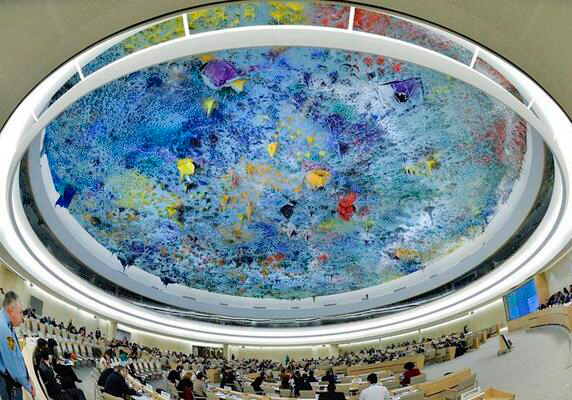
Mar 27, 2014 | Advocacy, Non-legal submissions
The ICJ made an oral statement on the recommendations made to Israel by the UN Human Rights Council, following Israel’s Universal Periodic Review.
The ICJ statement focussed on recommendations related to:
- compliance with international humanitarian and international human rights law , including particularly for thorough and impartial investigations into all allegations of human rights and humanitarian law violations committed in the context of the prolonged occupation of the OPT, and accountability of individuals responsible for such violations;
- Israel’s unlawful settlement policy;
- the separation wall; and
- administrative detention.
The full statement can be downloaded in PDF: Advocacy-UN-HRC25-IsraelUPR-20032014
Video of the discussion, including the ICJ statement, may be viewed here.
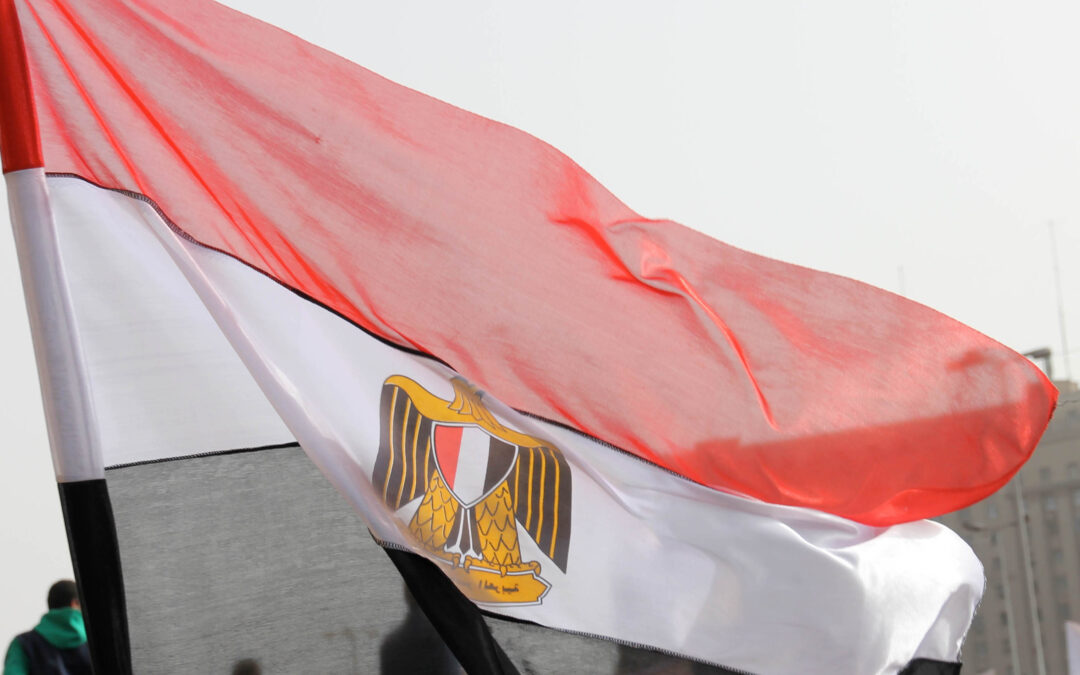
Mar 25, 2014 | News
The ICJ today strongly condemned the decision of the Criminal Court of Minya to convict 529 individuals and to sentence them to death.
The individuals were sentenced for “participating in an attack on a police station in Minya,” “murder of a police officer,” “attempted murder of two other officers,” “seizing weapons” and “damaging public property”.
The verdict comes against a backdrop of a continuing crackdown on individuals suspected of supporting the ousted President, Mohamed Morsi, or being members of the Muslim Brotherhood, an organization officially designated by the military and other transitional authorities as a terrorist organization.
The verdict followed a two-day trial that disregarded fundamental fair trial standards.
The first hearing lasted 30 minutes, while the second lasted one hour.
International law is clear: the imposition of the death penalty following an unfair trial violates the right to life.
The ICJ calls on the Egyptian authorities to extinguish the convictions resulting from this trial and ensure that those arrested, prosecuted and convicted for the legitimate exercise of their rights to freedom of association and assembly are immediately released.
“The Minya trial made an absolute mockery of justice, violating basic human rights, including the rights to life, to liberty, to be presumed innocent and to defence,” stated Said Benarbia, Director of the ICJ Middle East & North Africa Program. “Even with Egypt’s long history of unfair trials and systematic politicization of the judiciary, the Minya trial sets a new low, and could be dangerous precedent for mass convictions following mass trials against government critics.”
The ICJ is deeply concerned that this trial is a part of a deliberate policy by the Egyptian authorities to use the courts and the Office of the Public Prosecutor to arrest, prosecute, convict, and imprison opponents of the current authorities.
The ICJ is also concerned that this policy effectively shields from accountability police, security, and military officers responsible for human rights violations committed in the context of the crackdown that followed the ouster of President Morsi, including the killings of more than 1200 people, in particular during the dispersal of the Rabaa Al-Adawyia and Annahda pro-Morsi sit-ins on 14 August.
No effective investigation has yet been conducted into these killings, and the perpetrators remain unpunished.
“In times of crisis, judges and prosecutors must safeguard and uphold human rights and fundamental freedoms, not act as tools of repression by prosecuting and convicting individuals for the legitimate exercise of their rights” said Benarbia.
“The Egyptian authorities must respect the independence of judges and prosecutors and refrain from any undue, inappropriate or unwarranted interference in judicial matters,” Benarbia concluded.
Contact:
Said Benarbia, ICJ Director of the Middle East and North Africa Programme, tel: 41 22 979 38 17, e-mail: said.benarbia(a)icj.org
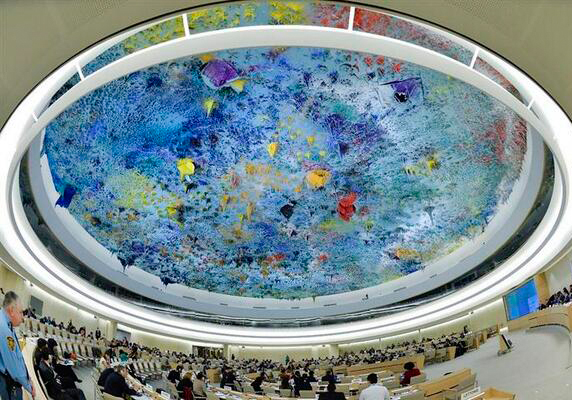
Mar 24, 2014 | Advocacy, Non-legal submissions
The ICJ made an oral statement to the UN Human Rights Council during the general debate on the situation of human rights in the Occupied Palestinian Territory.
The ICJ noted that, almost ten years after the International Court of Justice ruled the construction of the separation wall in the Occupied Palestinian Territory (OPT) to be unlawful, States and international organizations have failed to take effective measures to hold Israel accountable for violations of international humanitarian law and human rights law arising from the wall.
As the International Court of Justice held, States must not “recognize the illegal situation resulting from the construction of the wall” and must not “render aid or assistance in maintaining the situation created by such construction.” Israel, for its part, must dismantle the wall and its associated regime and provide reparation to victims.
At the same time, Palestinian armed groups must renounce all direct or indiscriminate attacks on civilians and civilian objects. Israel must also cease its own violations of international humanitarian law.
The ICJ further addressed the human rights impacts of Israeli settlements in the occupied territory, and the need for the Security Council effectively to address the issue.
The full statement can be downloaded in PDF here: Advocacy-UN-HRC25-IsraelOPT-24032014
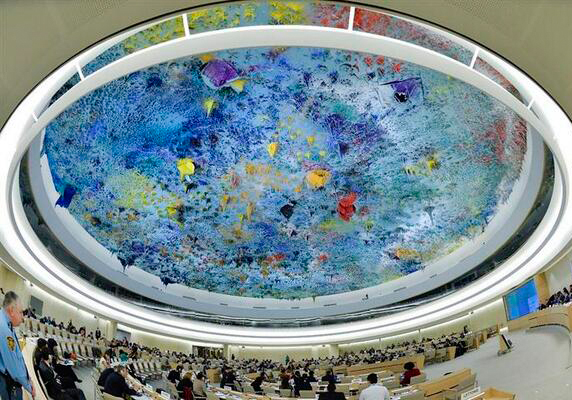
Mar 18, 2014 | Advocacy, Non-legal submissions
The ICJ made an oral statement to the UN Human Rights Council, during the session with the Commission of Inquiry on Syria, concerning failures to protect the civilian population and the need for justice and calling for referral of the situation to the International Criminal Court.The ICJ underscored that for more than three years, the international community has failed to respond in a meaningful or effective manner to serious violations of international human rights and humanitarian law and other human rights abuses committed in the context of the Syrian conflict, to ensure that perpetrators on all sides are held accountable, and to implement concrete measures towards justice for victims.
The statement called on the Human Rights Council to request the Security Council to take effective measures, in accordance with the UN Charter, to protect the civilian population, bring an end to the conflict, and restore and maintain peace and security in the region.
The ICJ said that states, including the member States of this Council, should also act to provide urgent humanitarian relief to refugees, IDPs, and those trapped in besieged areas.
The statement emphasised that as the armed conflict continues to escalate, government forces and opposition groups have both been responsible for war crimes, crimes against humanity and other crimes under international law, including murder, hostage-taking, torture and other ill-treatment (including rape and other sexual violence), enforced disappearance, recruiting and using children in the hostilities, and disproportionate and indiscriminate attacks against civilians and civilian objects.
To address the pervasive and structural culture of impunity, the ICJ called on the Council to request the Security Council to refer the situation in Syria to the International Criminal Court. States, individually and collectively, must also comply with their obligations under international law to prevent war crimes and crimes against humanity and to exercise all grounds of jurisdiction at their disposal to investigate and prosecute anyone suspected of responsibility for such crimes.
The full statement, in PDF: Advocacy-UN-HRC25-Syria-OralStatement-032014
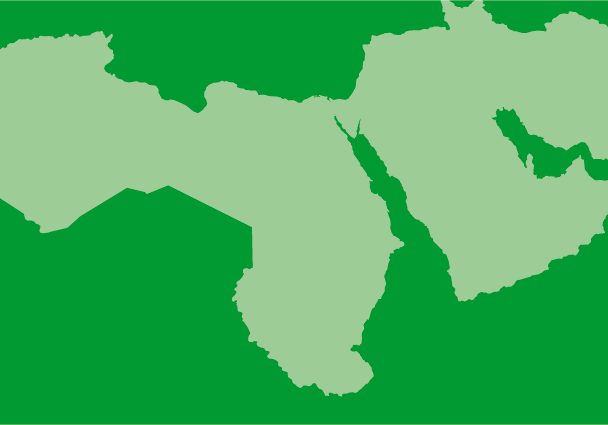
Dec 6, 2013 | News
The ICJ and Amnesty International expressed concern over the trial of Mohamed Belbouri before the criminal court of Oran in Algeria. The next hearing of the trial is held on Monday 9 December.
Belbouri, aged 29, stands as the sole accused in the murder of Professor Ahmed Kerroumi, an Algerian political activist. Kerroumi was killed in April 2011, shortly after meeting with the UN Special Rapporteur on freedom of expression, Frank La Rue, in Algeria.
The ICJ and Amnesty International call on the Algerian authorities to ensure the right of Kerroumi’s family members to know the truth about his killing and to criminally hold the perpetrator(s) to account in line with international fair trial standards.
The two organizations are concerned that the Belbouri trial has failed to meet these standards, including the right of the accused to be presumed innocent and to defence.
The two organizations are further concerned by allegations that acts of torture and other ill-treatment were inflicted on Belbouri during his interrogation in police facilities between 12 and 17 May 2011, apparently aiming to make him “confess” to the killing of Kerroumi.
Belbouri says he was beaten on the head, face, stomach and feet, electrocuted, made to sit on his knees for hours with a chair on his head, and threatened that his relatives would be ill-treated if he did not “confess”.
“Algerian authorities must respect and ensure the right of Belbouri to a fair hearing before an independent and impartial tribunal and in full compliance with international fair trial standards,” said Wilder Tayler, ICJ Secretary General.
“The authorities must also ensure that all reports of torture and other ill-treatment of Belbouri are thoroughly and impartially investigated, and that any statement alleged to have been obtained as a result of torture or other ill-treatment is not admitted as evidence by the court,” Tayler added.
Lawyers representing the accused and the family of Professor Kerroumi have both said that the trial was marred by irregularities.
These include the court’s refusal to allow the defence to call and cross-examine witnesses, including the forensic expert who performed the autopsy on Ahmed Kerroumi’s body, and to challenge and test evidence put forward by the prosecution.
“Justice would not be served by sentencing – possibly to death – a man who has claimed his innocence all along when they are so many doubts about the seriousness of the investigation,” said Philip Luther, Middle East and North Africa Director at Amnesty International.
Contact:
Said Benarbia, ICJ Senior Legal Adviser of the Middle East and North Africa Programme, tel: 41 22 979 38 1, e-mail: said.benarbia(a)icj.org









